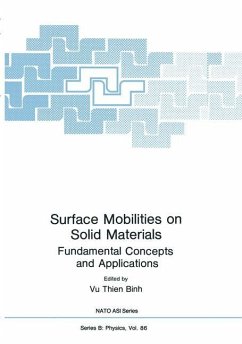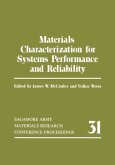The surface of solids had long been considered simply the external boundary which determined the outside appearance of the solids but had no intrinsic character of its own. The concept that surfaces have specific properties and are the first and foremost means of communication between individual things and the rest of the universe is fairly new, coming into prominence only in the early sixties. This new concept of surface properties was the result of a vast accumulation of knowledge due to recent development of research in this area. This breakthrough of surface science resulted from the combined action of four factors: (i) control of surface sample prep aration, (ii) control of the surface's environment, (iii) improve ment of measurement tools and techniques, and (iv) the importance of surface properties in many new industrial areas. Nearly eighty techniques are now available to help us answer to the following questions: what is the surface structure or arrangement of surface atoms? what are the atomic species present? what is the spatial distribution of foreign atoms? what are the nature and distribution of possible defects on the surface? what is the electronic structure of the surface atoms? what is the motion of atoms on the surface? In general, two or more analytical techniques are used concurrently to assure unequivocal answers to problems. Different techniques employ different combina. tions of incident probes and the scattered or secondary particles that convey information regarding the sur faces.
Hinweis: Dieser Artikel kann nur an eine deutsche Lieferadresse ausgeliefert werden.
Hinweis: Dieser Artikel kann nur an eine deutsche Lieferadresse ausgeliefert werden.








